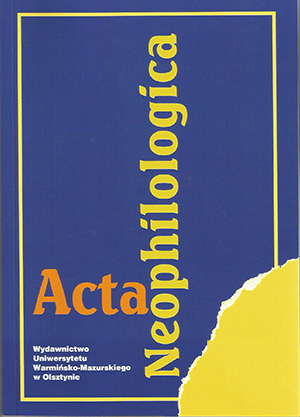Uwagi o języku propagandy politycznej w prasie polskojęzycznej wydawanej w ZSRR w okresie międzywojennym (na przykładzie „Trybuny Radzieckiej”)
THE POLITICAL PROPAGANDA LANGUAGE
IN THE POLISH PRESS PUBLISHED IN THE INTERWAR PERIOD (BASED ON “TRYBUNA RADZIECKA”)
Author(s): Tamara GraczykowskaSubject(s): Social Sciences, Language and Literature Studies, Media studies, Theoretical Linguistics, Applied Linguistics, Communication studies
Published by: Wydawnictwo Uniwersytetu Warmińsko-Mazurskiego w Olsztynie
Keywords: propaganda; the Polish press; the interwar period; Moscow Punktem
Summary/Abstract: This paper discusses the linguistic characteristics of political propaganda texts written in Polish,extracted from “Trybuna Radziecka,” a central Polish weekly published in Moscow in 1927–1938 andedited by Polish left-wing intelligentsia, living in this period in the USRR as political émigrés.The propaganda creates the world which is different from the real one and this world is alwaystendentious, up to point of being fictitious.The author attempts to demonstrate that many linguistic characteristics are common to all periodsof Polish propaganda. The Polish press published in Moscow in the interwar period initiated thecreation of the political socialist Polish post-war propaganda.There are seven fundamental properties which constitute the persuasive dimension ofpropaganda texts: importance, universality, proximity, necessity, legitimacy, coherence, progress,and permanence.The persuasive function of propaganda texts is achieved by such words as słuszny [legitimate],podstawowy [fundamental], zasadniczy [principal], kluczowy [key], masy [the masses], każdy[everyone], wszyscy [all], powszechny [universal] etc.
Journal: Acta Neophilologica
- Issue Year: 2/2014
- Issue No: XVI
- Page Range: 37-46
- Page Count: 10
- Language: Polish

